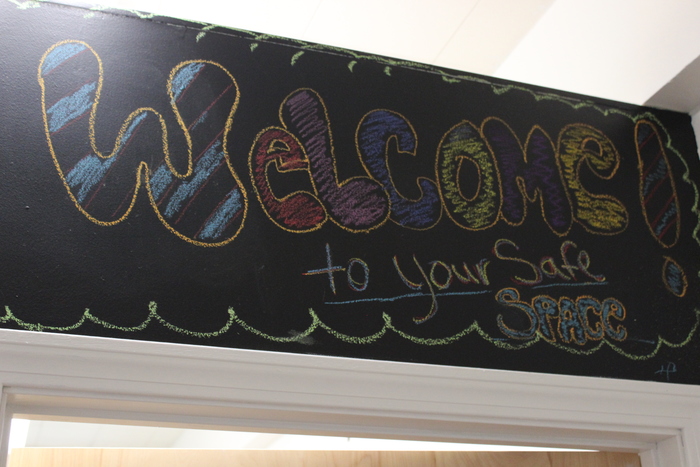What is WFC’s Transitional Living Program?
WFC’s Transitional Living Program provides interim housing to young adults that are homeless and have unstable housing conditions. WFC’s Transitional Living Program is not a short-term shelter or group home but a program that helps empower individuals to make choices and decisions in the best interest of their safety, well-being, and future.
Youth transitional living programs, like WFC’s Robyn’s House and WYSH House, can help individuals gain trust, practical knowledge, and, more importantly, a sense of self-worth. The qualities and attributes transmitted through programs will help young adults grow up to be self-sufficient, happy, and healthy mentally and physically. When they engage themselves in daily activities that develop job and life skills, it strengthens community connections through these transitional living programs.
What is Robyn’s House
Robyn’s House is a coed facility developed with a vision to help end homelessness among young adults via an empowerment-driven program that focuses on the young adults achieving their goals. Robyn’s House serves Meriden, Wallingford, and Middlesex County and helps runaways on the streets as well as homeless individuals. Robyn’s House is neither a shelter nor a group home but an 18-month program that requires a solid commitment to work hard. The program also has a Case Manager that individuals will get to see once a week regardless of being in school, working, or both. A specific timetable is followed along with a curfew, mandatory chores, and life skills workshops.
What is WYSH House
WFC’s WYSH House is the newest addition to the Project REACH program. WYSH House will be able to provide non-time limited supportive housing and prevention services to youth and young adults, ages 18-24, that have experienced homelessness. WYSH House continues the good work of Robyn’s House to help young adults in the program make choices in the best interest of their safety and well-being. These better choices are achieved through education, intervention, case management, referral services, and supportive counseling. The WYSH House project focuses on the disproportionate needs of youth experiencing homelessness in the state of Connecticut.

WFC’s Transitional Living Program Process
WFC’s Transitional Living Program is a chance for young adults that are homeless or unstably housed to get help and secure a safe housing option. Whether they end up at Robyn’s House or WYSH House, every individual in need of help will have to go through an assessment process to get assistance.
Below is a brief overview to help understand the process:
1. Assessing Need
With the 2-1-1 system set up by United Way of Connecticut, most young adults will get the help that they need. The 2-1-1 operator sets up appointments with our Youth Housing Navigator to evaluate their overall situation and short-term or long-term needs. When they engage in a meeting with the Youth Housing Navigator, they discuss the available natural support systems the youth already has and what is missing. This is a one-time assistance to see what resources are already known to the individual or determine if they require to be housed in WFC’s programs or find other appropriate programs for them.
2. When Housed Here
If the youth is placed at one of WFC’s housing programs, they will have 24/7 access to WFC staff who will help them get their basic needs met and, in the long run, the youth will be able to thrive and flourish on their own. A Case Manager will be assigned for every individual and will meet with them once a week to talk about their needs, their ambitions and help them find the right services and support to accomplish them.
- Move-in: After the youth have been accepted into the program, they will learn the program’s guidelines and policies and move in. It is essential that they feel accepted, welcomed, and safe. WFC will then help out with the necessities like toiletries/food and getting youth settled in their respective rooms.
- Building ongoing relationships and trust: Communication and building positive, trustworthy, and supportive relationships are crucial to success. Once the youth is settled, our case managers work on the youth’s service plan and design life skills workshops based on their requirements.
3. Aftercare: What happens when a Youth leaves?
Part of the case manager’s responsibilities and tasks is to produce an exit plan to set up the young adult for when they depart from the facility after the program is over. The case manager will establish permanent long-term support with the youth in the following areas:
- Service plans (permanent support connections)
- Health (improve social and emotional well-being)
- Housing (safe and stable housing)
- Employment/education
Once the youth leaves the facility, our case manager continues to stay in touch with them to provide a healthy, supportive resource.
Visit our website to learn more about WFC’s transitional housing for homeless youth, or reach out and connect with us at info@womenfamilies.org today.

